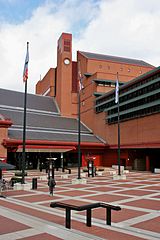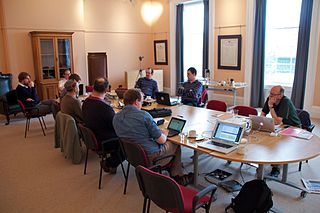
A panoply of international cultural experts and Wikimedians are set to descend on London next month for an international celebration of open access and culture.
GLAM-Wiki 2013 is a global conference, organised by the UK chapter in association with Wikimedia Sweden and Europeana, and hosted by the British Library. It examines the possibilities, relationships and potential for galleries, libraries, archives and museums in working with Wikimedia projects such as Wikipedia. The conference will take place on the weekend of 12-14 April at the British Library in London.
The international nature of the conference this year is reflected in the keynote speakers. The list includes Michael Edson of the Smithsonian Institution in Washington DC, Lizzy Jongma of the Rijksmuseum in Amsterdam and Nick Poole of the Collections Trust in London.
Michael Edson, Director, Web and New Media Strategy, of the Smithsonian Institution, said: “I don’t know of a single museum, archive, or library project that is as dedicated to transparency and quality improvement as the GLAM-Wiki community is. For GLAM-Wiki editors, it’s personal. Wikipedians are a terrific and intimidating audience. They tend to be well informed, independent thinkers who are hungry for big ideas and practical insights.”
Lizzy Jongma of the Rijksmuseum, Amsterdam, said: “The Rijksmuseum is all about art, about images. We want to share these images with everyone, everywhere. That’s why we have decided to put everything, free of use, up to date, in the best quality, on the internet. We believe that knowledge needs to be shared and the internet is the best medium to share and reach our global audience. GLAM-Wiki helps and supports galleries, libraries, archives and museums to produce open-access, freely-reusable content for the public.”
Nick Poole, Chief Executive Officer of the Collections Trust, said: “I am hugely excited to be speaking at the GLAM-Wiki conference. Wikimedians and culture professionals share a common set of values and there is so much that our communities can learn from each other. Wikimedia can help bring cultural content to a global audience, and at the same time help us solve some of the most pressing questions about how we work with our communities to create and share knowledge about collections on equal terms.”
As well as the keynote speakers there will be plenty of other activities taking place throughout the conference covering a broad range of topics related to the conference theme. You can see the schedule here
Tickets are available for the conference and are priced from £15 to £40, with some scholarships available. Visit http://bit.ly/glam-wiki13 for tickets and more information.













